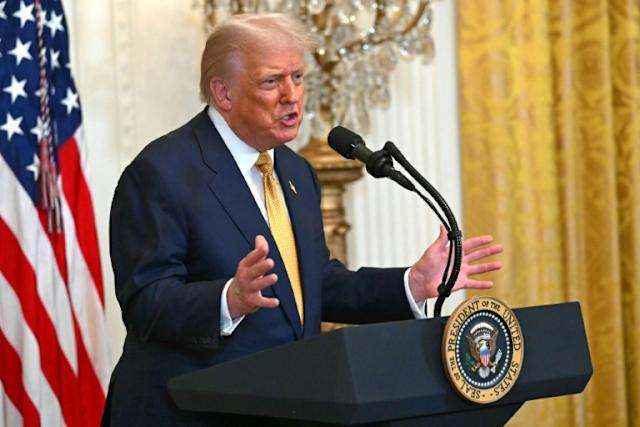U.S. President Donald Trump has announced a rollback of tariffs on more than 200 food products, including staples such as coffee, beef, bananas, and orange juice. The exemptions, effective retroactively from Thursday, come amid mounting concerns over rising grocery prices and consumer affordability.
Speaking aboard Air Force One, Trump said the tariffs “may in some cases” raise prices but insisted overall inflation in the U.S. remains “virtually zero.” The move represents a significant reversal for Trump, who has long defended the sweeping import duties imposed earlier this year.
The administration also revealed plans to distribute $2,000 payments to lower- and middle-income Americans, funded by tariff revenues next year. Trump described the initiative as a “dividend” while also noting efforts to reduce national debt.
The tariff exemptions follow several framework trade deals that will eliminate duties on food imports from Argentina, Ecuador, Guatemala, and El Salvador, with additional agreements expected before the year ends. The White House highlighted that these exemptions target products not grown or processed in the U.S., and come after nine framework deals, two final reciprocal trade agreements, and two investment deals were concluded.
Recent data shows ground beef prices have surged nearly 13%, while steaks rose almost 17% year-on-year, the highest increases in over three years. Banana prices climbed about 7%, and tomatoes 1%, contributing to a 2.7% rise in overall home food costs in September.
Industry groups largely welcomed the rollback. Leslie Sarasin, president of the FMI-Food Industry Association, said the measure could make morning coffee more affordable and benefit U.S. manufacturers. However, some sectors, such as spirits, were disappointed to be excluded.
Trump emphasized that further tariff changes are unlikely, asserting that the rollback alone would help reduce the cost of affected goods quickly.
With food prices a growing concern for American voters, this move signals a new focus on affordability, even as debates continue over the impact of tariffs on inflation.

